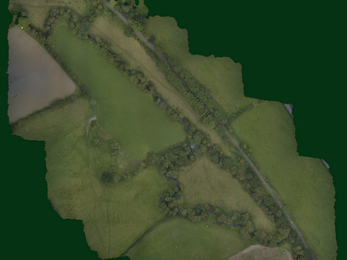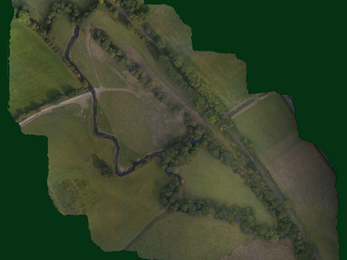In 2023, excavation and construction work began to re-meander a 400m section of the river back to its original channel and open up more than 28km of river and tributaries for fish migration at the site of the former Postern Mill in Turnditch, Derbyshire.
The new channel bypasses the last remaining weir on the Ecclesbourne, located between Wirksworth and where the river joins the Derwent near Duffield, restoring the river to its original course, which was diverted in the 18th century for milling.
Working with partners at the Wild Trout Trust, Chatsworth, and Nestlé Waters & Premium Beverages UK, Derbyshire Wildlife Trust led the project to help improve water quality and enrich the ecological status of the river.
It was launched following a Wild Trout Trust habitat assessment that found the river had significant potential for fish spawning, including Atlantic salmon, but migration was blocked by manmade barriers.
Now complete, the two-year project has delivered a wide range of benefits to wildlife and people. Natural river processes have been restored, creating important flow diversity across the new channel and providing vital habitats for fish and invertebrates.
The project has opened fish passage for many species, including Atlantic salmon, classified as ‘endangered’ in UK, and European eel classified as ‘critically endangered’ globally by the International Union for Conservation of Nature. Other species to benefit include grayling, trout, lamprey, minnow, stone loach, and bullhead.
Derbyshire Wildlife Trust staff and volunteers have planted more than 1,100 native trees along the riverbanks to help stabilise the soil, reduce erosion, offer shade to wildlife, and further enhance biodiversity. Invasive Himalayan balsam has also been controlled along a 6-kilometre stretch of riverbank, significantly improving conditions for native plant and animal species.
At the heart of the project, has been the communities within the catchment. The project has connected with more than 700 local people, raising awareness about the importance of healthy rivers, local biodiversity, and the decline of the Atlantic salmon. Eight community groups and schools were supported to take long-term, positive action for their local stretch of river, helping to ensure the project’s legacy continues well beyond its completion.


